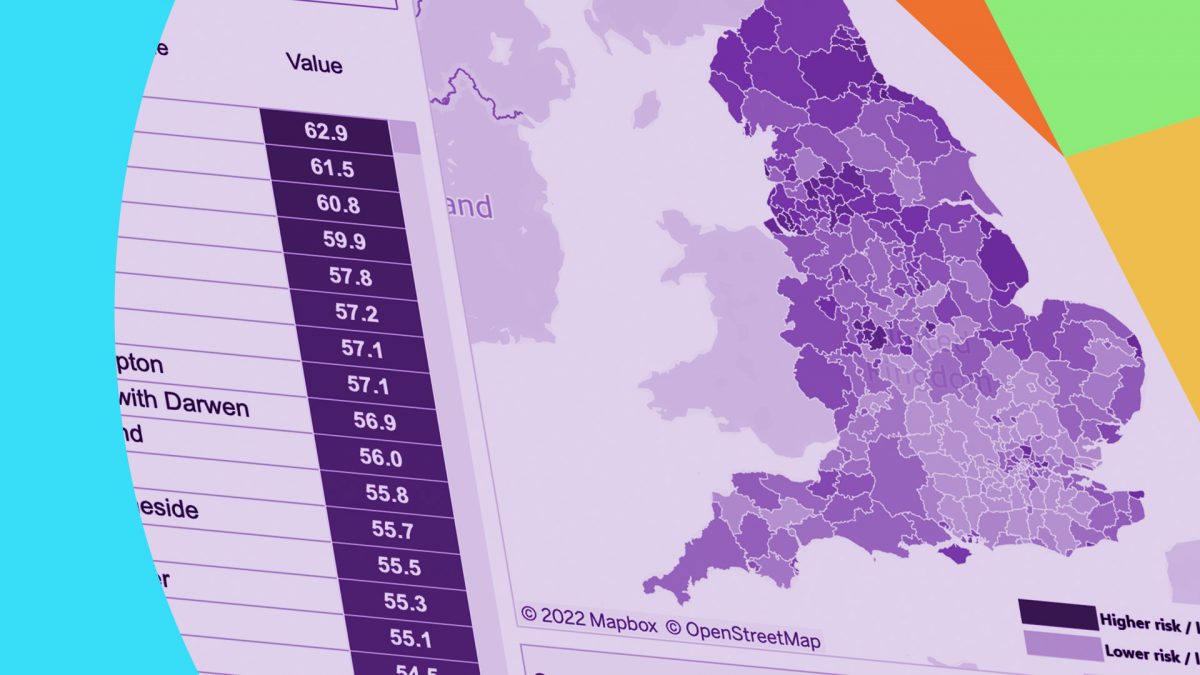Millions of adults with pre-existing serious health conditions are spending the Christmas and New Year period in cold damp homes, according to new research. [1]
The figures for the Warm This Winter campaign reveal the growing depth of the energy bills crisis – especially among the most vulnerable.
18% of the population (9.02m adults) are living in cold damp homes this month, with a quarter of people with health conditions which are made worse by cold and damp unable to heat their homes to a safe standard (26%, 4.75m).
A third of those with disabilities (28%, 1.9m) live in cold damp homes.
The research also reveals that people are not just concerned about their own welfare. One in ten of the population (9%) are worried about an older relative being exposed to the health impacts of living in a cold damp home. Almost a third (27%) were worried about the impact of fuel poverty on their local community.
And despite Government campaigns calling for people to save energy, over half (55%) believe they had already implemented energy reduction measures prior to this winter – with 15% already cutting back their energy use to the bare minimum necessary to keep safe.
Jonathan Bean from Buckinghamshire, describes his experience of fuel poverty:
It’s a daily battle for my asthmatic son and I to keep our home free of mould and damp.
We have dehumidifiers and electric heaters running as much as we can afford to, but that still doesn’t keep the home any warmer than 12 degrees.
We even had ice forming inside our double glazed windows during the recent cold weather.
Our electricity bills keep going up and while others who are ‘off the gas grid’ have had extra government support, we haven’t.
A spokesperson for the End Fuel Poverty Coalition which is part of the Warm This Winter campaign, commented:
As we get deeper into winter, our worst fears about rising energy bills are being realised.
We are now a nation unable to keep itself warm, concerned for the well being of our nearest and dearest and spending a festive season suffering in cold damp homes.
Jacky Peacock from Advice for Renters, a charity working with those in fuel poverty in North London, added:
We used to read Dickens at Christmas with a sense of nostalgia, but now Dickensian conditions are back for those who can’t afford to heat their homes this winter.
Graham Easterlow, Chief Executive of East Durham Trust in Peterlee, said:
Working in the most left behind place in England we see the devastating effects that poor housing has on people’s health and wellbeing. With many unable to heat their homes we fear that more homes will suffer with damp and cold.
Alice Harrison, Fossil Fuels Campaign Leader at Global Witness, commented:
It’s scandalous how many people will be celebrating Christmas this year in cold, damp homes.
If our government was serious about addressing energy poverty this winter it would hike taxes on the oil and gas companies that have made billions on the back of the skyrocketing cost of energy and the impoverishment of millions of UK citizens.
Simon Brammer, Head of Cities at climate solutions charity Ashden, said:
How is it possible in the world’s sixth richest country that people are still living in cold, expensive to heat homes, causing misery and poor health for millions?
We urgently need a UK-wide, 10-year, street-by-street retrofit plan that is properly funded – combined with a skills strategy to ensure we have the skilled labour to deliver it.
Graham Duxbury, Chief Executive of Groundwork UK added
We are desperately worried about the mental and physical health effects of people living in cold, damp homes this Christmas.
Our Green Doctors are making an unprecedented number of home visits to deliver energy advice and tell us that they are seeing more and more people living in ‘pre-Victorian conditions’, forced to survive without heat and cutting back on essential personal items.
This is not a short-term crisis but a long-term need, which can only be resolved by putting in place extra protection for those most vulnerable, a more coordinated approach to funding advice services and by ramping up efforts to retrofit homes.
Stuart Bretherton, Energy For All Campaign Coordinator at Fuel Poverty Action, said:
The political choices of this government are quickly turning this poverty crisis into a public health crisis, which could result in an unprecedented number of deaths from cold and damp this winter.
This is in a year that profits for energy companies have doubled or even tripled in some cases. With this money you could end deaths from fuel poverty by making sure everyone could access enough energy to meet their basic needs.
ENDS
‘Dickensian’ graphic used is from Shutterstock and is an artists conception.
[1] 2,186 people interviewed between 20-21 December 2022. Results were weighted to be representative of the GB population.
The GB population aged 18 or over stands at 51,435,642 (ONS) and population statistics are derived from this number. The figures apply to adults only and the number of children also in cold damp homes would be in addition to this. Deeper analysis of the data will be published in the new year on this issue.
[2] Comparison with previous research
| Nov 2022 [3] | Dec 2022 [1] | |
| All adult public in cold damp homes | 19% | 18% |
| Vulnerable adults in cold damp homes | 22% | 21% |
| Adults with health conditions in cold damp homes | 26% | 26% |
| Elderly people in cold damp homes | 10% | 10% |
| Disabled adults in cold damp homes | 28% | 29% |
| Young families in cold damp homes | 26% | 21% |
| Rural and vulnerable adults in cold damp homes | 23% | 20% |
| BAME adults in cold damp homes | 22% | 24% |
| Pre-Payment Meter (PPM) Customers in cold damp homes | 31% | 36% |
[3] 2,198 people interviewed between 29-30 November 2022. Results were weighted to be representative of the GB population.



